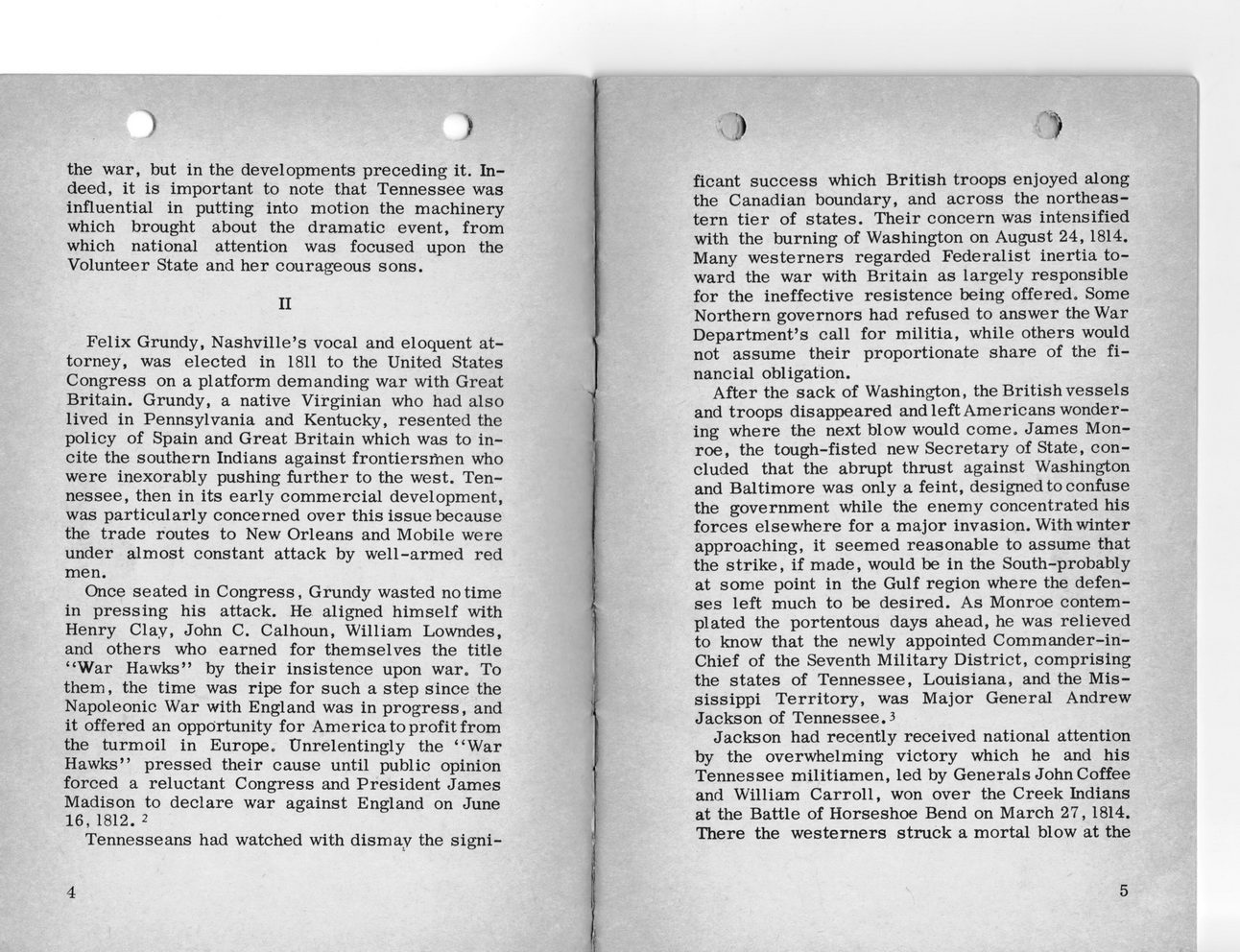This text was obtained via automated optical character recognition.
It has not been edited and may therefore contain several errors.
> the war, but in the developments preceding it. Indeed, it is important to note that Tennessee was influential in putting into motion the machinery which brought about the dramatic event, from which national attention was focused upon the Volunteer State and her courageous sons. II Felix Grundy, Nashville?s vocal and eloquent attorney, was elected in 1811 to the United States Congress on a platform demanding war with Great Britain. Grundy, a native Virginian who had also lived in Pennsylvania and Kentucky, resented the policy of Spain and Great Britain which was to incite the southern Indians against frontiersrtien who were inexorably pushing further to the west. Tennessee, then in its early commercial development, was particularly concerned over this issue because the trade routes to New Orleans and Mobile were under almost constant attack by well-armed red men. Once seated in Congress, Grundy wasted no time in pressing his attack. He aligned himself with Henry Clay, John C. Calhoun, William Lowndes, and others who earned for themselves the title ?War Hawks? by their insistence upon war. To them, the time was ripe for such a step since the Napoleonic War with England was in progress, and it offered an opportunity for America to profit from the turmoil in Europe. Unrelentingly the ?War Hawks? pressed their cause until public opinion forced a reluctant Congress and President James Madison to declare war against England on June 16, 1812. 2 Tennesseans had watched with dismay the signi- 4 ficant success which British troops enjoyed along the Canadian boundary, and across the northeastern tier of states. Their concern was intensified with the burning of Washington on August 24, 1814. Many westerners regarded Federalist inertia toward the war with Britain as largely responsible for the ineffective resistence being offered. Some Northern governors had refused to answer the War Department?s call for militia, while others would not assume their proportionate share of the financial obligation. After the sack of Washington, the British vessels and troops disappeared and left Americans wondering where the next blow would come. James Monroe, the tough-fisted new Secretary of State, concluded that the abrupt thrust against Washington and Baltimore was only a feint, designed to confuse the government while the enemy concentrated his forces elsewhere for a major invasion. With winter approaching, it seemed reasonable to assume that the strike, if made, would be in the South-probably at some point in the Gulf region where the defenses left much to be desired. As Monroe contemplated the portentous days ahead, he was relieved to know that the newly appointed Commander-in-Chief of the Seventh Military District, comprising the states of Tennessee, Louisiana, and the Mississippi Territory, was Major General Andrew Jackson of Tennessee.3 Jackson had recently received national attention by the overwhelming victory which he and his Tennessee militiamen, led by Generals John Coffee and William Carroll, won over the Creek Indians at the Battle of Horseshoe Bend on March 27, 1814. There the westerners struck a mortal blow at the 5

Battle of 1814 5